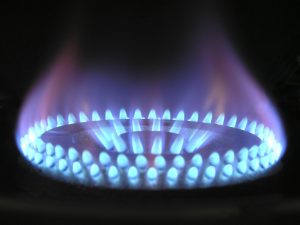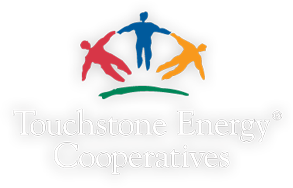 When it comes to energy efficiency everything you do, from flipping a switch to upgrading to LED light bulbs can add up to big savings for you. Try some of these money saving tips and find out how the little changes add up at togetherwesave.com.
When it comes to energy efficiency everything you do, from flipping a switch to upgrading to LED light bulbs can add up to big savings for you. Try some of these money saving tips and find out how the little changes add up at togetherwesave.com.
Water Heating
- Set your water heater temperature no higher than 120 degrees F.
- Install a water heater wrap per manufacturer’s instructions.
- Drain a few gallons from the bottom of your water heater each quarter to reduce sediment build up.
- Insulate exposed hot water lines.
- Limit shower length to 5-7 minutes.
- Install low-flow shower heads.
- Fix dripping faucets.
Laundry
- Wash clothes in cold water. Use hot water only for very dirty loads.
- Only do full loads of laundry.
- Clean your dryer’s lint trap before each load.
- Make sure the outdoor dryer exhaust door closes when the dryer is off.
- Make sure the dryer vent hose is not kinked or clogged.
- Dry consecutive loads to harvest heat remaining in dryer from the last load.
- Consider using a clothes line to air dry your clothes.
Kitchen
- Switch your refrigerator’s power-saver to “ON”, if available.
- Clean refrigerator coils annually.
- Set the refrigerator temperature to 34 – 37 degrees and freezer temperature to 0 – 5 degrees F.
- Unplug unused refrigerators or freezers.
- Only run the dishwasher when fully loaded.
- Open your dishwasher and air dry your dishes instead of using the dryer cycle.
Lighting
- Replace incandescent light bulbs with LEDs.
- Turn off unnecessary lighting especially in rooms nobody is using.
Miscellaneous
- Turn computers and monitors off when not in use.
- Ensure all new appliances are ENERGY STAR approved.
Heating and Air Conditioning
- Set thermostats to 78 degrees F in summer, 68 degrees F in winter.
- Run ceiling fans blowing down in the summer and up in the winter.
- Change HVAC filters as needed.
- Insulate electric wall plugs and wall switches with foam pads.
- Caulk around windows and cracks.
- Close fireplace dampers when not burning a fire.
- Make sure shades are open during the day to catch free solar heat in the winter.
- Close shades at night to keep heat in during the winter.
- Close shades during the day to help keep heat out in the summer.
- Insulate attic access door.
- Ensure windows and doors are properly weather-stripped.
- Have your HVAC system serviced once per year by a certified technician.
- Minimize the use of electric space heaters.
- Ensure your outdoor heat pump/air conditioning unit is kept clean and free of debris.
- Install a programmable thermostat.


